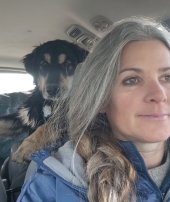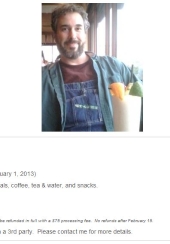
 27
27





Like my shiny badges? Want your own? Check out Skills to Inherit Property!
 7
7




 17
17




Visit Redhawk's soil series: https://permies.com/wiki/redhawk-soil
How permies.com works: https://permies.com/wiki/34193/permies-works-links-threads
 13
13




“The beautiful thing about learning is that nobody can take it away from you.” – B.B. King
 13
13












 15
15




I choose...to be the best me I can be, to be the strongest me I can be, to learn the most I can. I don't know what comes next. But I'm gonna go into it balls to the walls, flames in my hair, and full speed ahead.





 11
11




Community Building 2.0: ask me about drL, the rotational-mob-grazing format for human interactions.
 10
10




I'm only 65! That's not to old to learn to be a permie, right?
 7
7




Melonie Corder wrote:
Looking back, it was worth it. Every bit of suffering was worth the memories, the experiences and lessons those two gave me. The love, patience, guidance, confidence, all of it. There's something to "it's better to have loved and lost..."
Jay Angler wrote:
Thank you for the book reference. Our regional library has 22 holds on 2 copies of it, so I guess I'll be hold number 23!
Hang in there, and I hope you can see a light at the end of the tunnel.
Like my shiny badges? Want your own? Check out Skills to Inherit Property!
 8
8




Thank you so much for the offer, but I really try to support my regional library for all the people who don't have the space or money to own books they'd benefit from reading. If the book takes too long to come, I'll pester the Manager to buy a couple more copies! I did that with Restoration Agriculture which constantly had a long list of reserves on it, and they bought two more copies. I'm at the point that if I bring home a new book, I need to give away an old book.I'm happy to purchase a copy of the audiobook for you, if that would be of interest for you. It would be my pleasure.
Visit Redhawk's soil series: https://permies.com/wiki/redhawk-soil
How permies.com works: https://permies.com/wiki/34193/permies-works-links-threads
 10
10




 7
7




 10
10




 13
13




Best luck: satisfaction
Greatest curse, greed
 9
9




Visit Redhawk's soil series: https://permies.com/wiki/redhawk-soil
How permies.com works: https://permies.com/wiki/34193/permies-works-links-threads
 8
8




Teacher | Gardener | Sustainability Enthusiast
 7
7




Rick Valley at Julie's Farm











 7
7




Working toward a permaculture-strong retirement near sunny Sperling.
 10
10




Derek Thille wrote: ...This thread also brings to mind to me the 8 forms of capital. Social capital, or community, can help us get through life events like this. Spiritual capital is also very important dealing with things like loss.
My current interest is to observe & get to know my new land, and plan on how it can support me for the rest of my life!











 6
6




Kim Wills wrote:
Derek Thille wrote: ...This thread also brings to mind to me the 8 forms of capital. Social capital, or community, can help us get through life events like this. Spiritual capital is also very important dealing with things like loss.
Hi, I'm curious what you mean by spiritual capital, if you don't mind elaborating a bit.
Working toward a permaculture-strong retirement near sunny Sperling.
 7
7




Celtic/fantasy/folk/shanty singing at Renaissance faires, fantasy festivals, and other events in OR and WA, USA.
RionaTheSinger on youtube.
Pop-up garden/vintage+ yard stand owner.
 5
5




Rick Valley at Julie's Farm

|
Just let me do the talking. Ahem ... so ... you see ... we have this tiny ad...
Learn Permaculture through a little hard work
https://wheaton-labs.com/bootcamp
|






